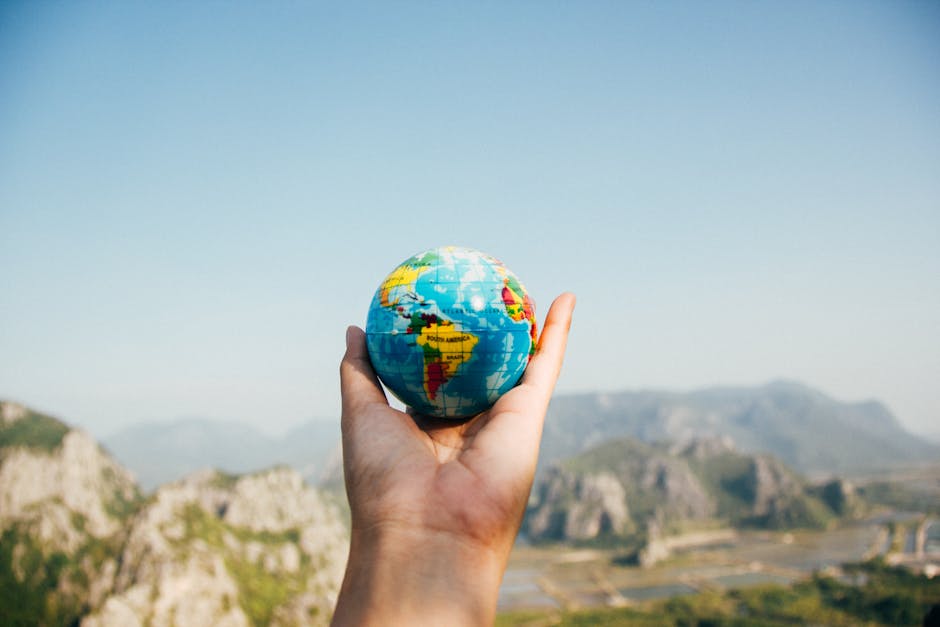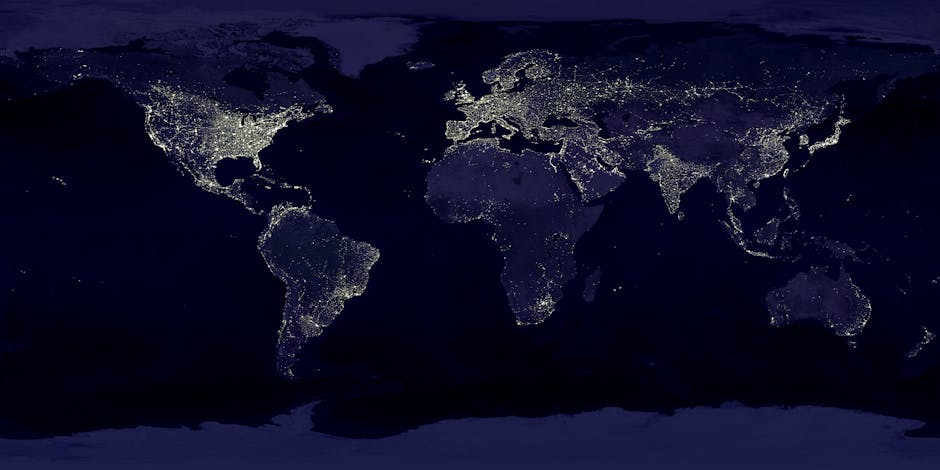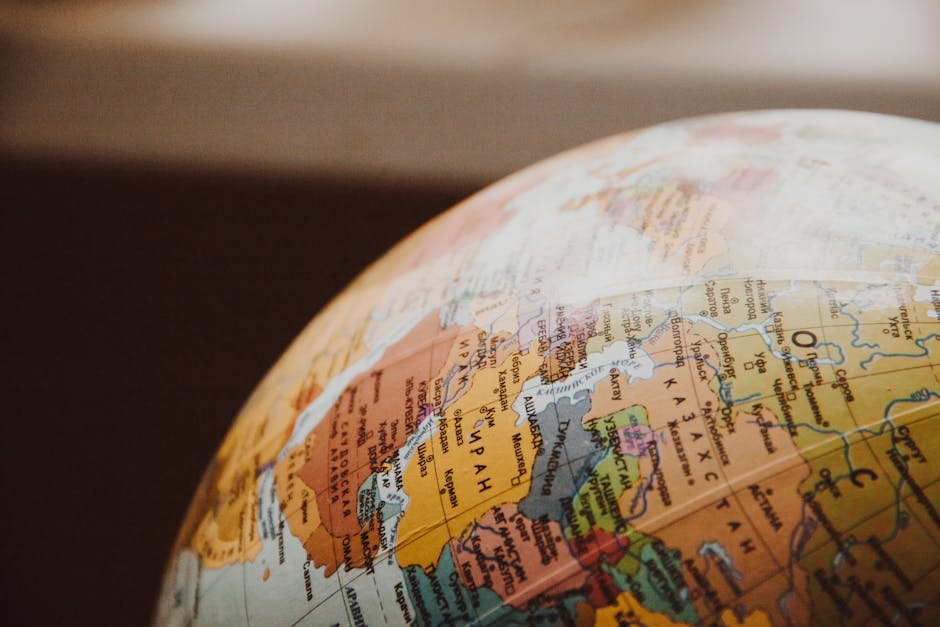Poetry has a universal language that transcends borders, cultures, and continents. Poetry around the world showcases the diverse forms and themes that this timeless art form takes on in different countries. From the lyrical verses of ancient Greece to the rhythmic haiku of Japan, from the epic poems of the Middle East to the spoken word performances of contemporary America, poetry reveals the soul of a nation through its language and traditions.
Vibrant – 27 Poetry Masterpieces Around the World
Whispers in the Wind
In the silence, I hear your voice
A gentle whisper, a heartfelt choice
To speak to me, to guide me through
The darkest nights, the moments anew
Starlight Serenade
Silent stars up in the sky
Twinkling, sparkling, as I sigh
Their gentle melody, a lullaby
Rocking me to sleep, as the world goes by
Midnight Mirage
Moonbeams dance upon my floor
A midnight mirage, and I ask for more
A fleeting dream, a moment’s peace
A respite from the world’s wild release
Rhythm of the Rain
Droplets falling, rhythms sweet
A symphony, my heart skips a beat
In every drop, a story’s told
Of memories past, and moments to hold
Wildflower Soul
Petals soft, like silk to touch
A wildflower soul, in a world so rough
Unbridled heart, with a spirit free
Dancing in the breeze, wild and carelessly
Forgotten Melody
Echoes of a tune, long forgotten now
A haunting refrain, that whispers low
In the shadows, it lingers near
A forgotten melody, that brings a tear
Luminous Dreams
Moonlit nights, with visions bright
Luminous dreams, that fill the night
Shadows fade, as morning breaks
Leaving me with memories, and heart that awakes
Sunset Serenity
Golden hues, upon the sea
A peaceful sunset, for you and me
The day’s last breath, in a final sigh
As the stars appear, in the evening sky
Whispers of Yesterday
Footsteps echo, down a lonely road
Whispers of yesterday, that long to unfold
Memories of love, of laughter and of tears
A nostalgic heart, that wipes away the years
Cosmic Waltz
Stars align, in a celestial spin
A cosmic waltz, that begins within
A dance of fate, of chance and desire
A universal rhythm, that sets the heart on fire
Enjoying these poems? You can also create your own poems with our Advanced AI Poem Generator.
Whispers in the Wind
In whispers, secrets unfold, carried by the breeze
A gentle caress, as petals sway to the trees
Summer’s warmth exhales, as sunbeams dance and play
In whispers, the truth is spoken, in a language of the day
Fading Light
The sun’s descent is slow, a fiery glow subsides
To embers that die, as twilight’s veil is bridged
The world is bathed in hues of crimson red
A fleeting moment’s peace, before the night’s dark head
In the Stillness
A pause, a silence, a moment’s hush
Where time stands still, and the world is not so rush
The quiet calm descends, a sense of peace takes hold
In the stillness, the heart beats, with a story untold
Monsoon’s Lullaby
The storm awakens, drums beating loud and clear
Raindrops rhythmically falling, bringing life to the year
The scent of wet earth rises, a symphony plays
In the monsoon’s lullaby, the heart finds its way
Midnight Sky
A sea of twinkling stars, a celestial show
A canvas of darkness, where constellations glow
The world is hushed, in a stillness of the night
As the midnight sky whispers secrets, of the universe’s delight
Data Dust
In the virtual realm, echoes resound
A world of zeroes and ones, where cyberspace is found
The hum of servers, a heartbeat in the dark
A digital expanse, where data dust takes its mark
Dawn’s Awakening
The sky is painted fiery red,
As sunrise slowly starts its thread,
The world stirs from its slumber deep,
And morning’s warmth begins to creep.
The birds awake, their songs unfold,
A symphony to make the heart of gold,
The dew-kissed grass, a carpet bright,
Reflects the sun’s descending light.
It’s a new beginning, full of might,
A chance to start anew, and make it right.
Whispers from the Wind
The wind whispers secrets in my ear,
Of distant lands and distant fear,
Of life’s unanswered questions too,
And the mysteries that lie anew.
It speaks in hushed tones, unknown,
Of forgotten dreams that have been sown,
Of love that’s lost and love that’s found,
And paths that lead to unknown grounds.
It whispers echoes of what’s past,
And the soft caress that will forever last.
The Language of Flowers
Petals unfold like tender hands,
Revealing secrets to the sands,
Of distant lands and ancient dreams,
Where love and sorrow intertwined serene.
The language of flowers takes flight,
With symbols and meanings to ignite,
In the hearts of those who kneel and bend,
And listen to the whispers that ascend.
Roses speak of passion pure and true,
Lilies whisper of innocence anew,
And sunflowers tall and proud and bright,
Command the sun to hold their sight.
Fading Light of Dusk
As sunset’s glow begins to fade,
And shadows lengthen, dusk is made,
The world is bathed in twilight’s hue,
A moment’s peace, before the new.
The stars appear, a twinkling sea,
And night’s soft veil is gently set to be,
The world is hushed, in quiet sleep,
As darkness claims the day’s whispered keeping.
In this fleeting moment, I am still,
A part of this eternal, quiet hill.
The Song of the Earth
Oh, Earth, you wear your beauty with such grace,
From the mighty Andes’ peaks to the Sahara’s face.
You sing a song of life, a melody so pure,
A symphony of nature, forever to endure.
In the verdant valleys where the rivers flow,
Where the seeds of life in freedom grow,
There, the Earth’s heartbeat echoes in the glen,
A soothing lullaby, a Mother’s gentle den.
The Earth’s tapestry is woven with threads of glowing hues,
Where the sun paints gold and the moon bathes in blues.
From the coral reefs’ splendor to the northern lights’ dance,
Each a testament to the Earth’s eternal romance.
The Whispering Winds
The whispering winds carry tales from afar,
Of lands unknown, of stars that are.
They dance through the forest, they twirl ’round the tower,
Spinning stories in every hour.
They sing of the desert where the cacti stand tall,
Of the polar ice caps where the penguins call.
They hum of the meadow where the daffodils sway,
Of the monsoon rains that wash the dirt away.
The whispering winds are the poets of the sky,
Their verses a secret, only the clouds know why.
They’re the minstrels of nature, the bards of the glade,
In every breeze, their enchanting charade.
The Ocean’s Lament
Oh, Ocean, your tears are as old as time,
Your waves whisper secrets in every rhyme.
You cradle the earth, like a babe in your arms,
A symphony of sobs as you face life’s alarms.
You’ve seen the continents rise and fall,
Witnessed the birth and the funeral of all.
Yet, in your depths, you keep life’s greatest jest,
A treasure of stories in your blue chest.
You’re a mirror of the sky, a canvas of dreams,
A path for the sailors, a river of streams.
Oh, Ocean, your lament is a melody so deep,
A ballad of time that softly weep.
The Dance of the Fireflies
In the heart of the night, under the moon’s gentle glow,
The fireflies dance, a spectacle to bestow.
A ballet of lights, a symphony in green,
A thousand twinkling stars on the forest’s serene.
They court in the shadows, they flirt in the breeze,
A dance of love as the summer falls to its knees.
They’re the poets of the night, the musicians of the dusk,
In every glimmer, in every spark, a tale they discuss.
The dance of the fireflies is a sight to behold,
A story of love in the night’s folds.
A fleeting moment of beauty, of magic, of glee,
A dance of lights in the heart of the sea.
The Hymn of the Sun
The sun rises, a hymn to greet the day,
A symphony of light that drives night’s sway.
It paints the sky in hues of gold,
A tale of courage, of a king so bold.
It kisses the mountains, it hugs the sea,
A dance of warmth for all to see.
It feeds the flowers, it warms the soil,
A symphony of life, of love’s coil.
The hymn of the sun is a melody so bright,
A ballad of hope in the morning light.
A promise of life, of a new start,
A hymn of love in every heart.
Most Popular Poems Celebrating “Poetry Around the World”
“The Waste Land” by T.S. Eliot
A modernist masterpiece, “The Waste Land” is a poetic reflection of disillusionment and spiritual decay in post-World War I Europe. This long, fragmented poem weaves together myth, history, and personal struggle, juxtaposing the disillusionment of modern society with the hope of spiritual renewal.
“The Love Song of J. Alfred Prufrock” by T.S. Eliot
In this iconic poem, Eliot’s protagonist, J. Alfred Prufrock, grapples with his own insecurities and fears of rejection as he ponders approaching a potential lover. Through Prufrock’s inner monologue, Eliot masterfully explores the human psyche, revealing the complexities and anxieties of modern life.
“The New Colossus” by Emma Lazarus
Engraved on the pedestal of the Statue of Liberty, this sonnet is a beacon of hope and freedom, welcoming immigrants to American shores. Lazarus’s poem has become a symbol of the American dream, celebrating the country’s promise of liberty, opportunity, and a brighter future.
“Ode to a Nightingale” by John Keats
In this beautiful and melancholic ode, Keats yearns to transcend the suffering and pain of human existence, seeking solace in the eternal beauty of nature. Through his exquisite language and imagery, Keats captures the fleeting nature of life and the longing for a world beyond mortality.
“The Road Not Taken” by Robert Frost
One of the most celebrated poems in the American canon, “The Road Not Taken” is a poignant exploration of choice and regret. Frost’s narrator reflects on the path not taken, contemplating the consequences of his decision and the what-ifs of life.
“Do Not Go Gentle into That Good Night” by Dylan Thomas
A powerful villanelle, this poem is a fierce cry against the inevitability of death, urging the speaker’s father to resist the coming darkness with every ounce of strength. Thomas’s language is both beautiful and intense, conveying the passion and defiance of the human spirit.
“The Tyger” by William Blake
In this mystical and enigmatic poem, Blake ponders the nature of creation and the relationship between the creator and the created. Through his vivid imagery and symbolism, Blake invites the reader to contemplate the mysteries of existence and the divine.
“The Raven” by Edgar Allan Poe
A haunting and atmospheric poem, “The Raven” is a masterpiece of Gothic literature. Poe’s narrator is visited by a mysterious raven, which speaks to him of lost love and mortality, drawing him deeper into the abyss of sorrow and despair.
“Mother to Son” by Langston Hughes
A powerful and emotional poem, “Mother to Son” is a heartfelt advice from a mother to her son, urging him to persevere in the face of adversity. Hughes’s poem is a testament to the strength and resilience of African American families, as well as the struggle for equality and justice.
“The Dunciad” by Alexander Pope
A scathing satire of 18th-century literary and cultural politics, “The Dunciad” is a poetic tour-de-force of wit and irony. Pope’s poem lampoons the vanity and ignorance of his contemporaries, offering a biting commentary on the excesses of power and the corruption of culture.
“Kubla Khan” by Samuel Taylor Coleridge
A fantastical and dreamlike poem, “Kubla Khan” is a product of Coleridge’s opium-induced reverie. The poem is a vivid exploration of the human imagination, weaving together mythology, history, and fantasy in a kaleidoscope of language and imagery.
The Global Reach of Poetry
Poetry is a universal art form that transcends borders and cultures. It is a form of expression that has been used for thousands of years to convey emotions, tell stories, and preserve cultural heritage. From the ancient poetry of China and Greece to the modern poetry of the digital age, poetry has evolved and adapted to reflect the changing world.
Poetry in Different Cultures
Poetry takes many different forms around the world, each reflecting the unique culture and history of its origin. In the Middle East, for example, poetry has long been a respected and honored form of expression. Classical Arabic poetry, known as “nahw,” follows strict rules of meter and rhyme, and often focuses on themes of love, nature, and morality.
In Africa, poetry is often used as a means of storytelling and preserving cultural history. African oral poetry, or “griots,” is passed down from generation to generation, and often includes elements of music and dance.
In India, poetry has been an important part of the culture for thousands of years. Classical Indian poetry, known as “kavya,” follows strict rules of meter, rhyme, and rhetoric, and often focuses on themes of love, nature, and spirituality.
Poetry as a Form of Protest
Poetry has often been used as a form of protest and resistance. Throughout history, poets have used their words to speak out against injustice, oppression, and war. In the 20th century, for example, poets such as Pablo Neruda, Langston Hughes, and Anna Akhmatova used their poetry to protest political repression and social inequality.
Poetry in the Digital Age
The digital age has brought about new forms and platforms for poetry. Social media platforms such as Instagram and Twitter have given rise to a new generation of poets who use these platforms to share their work and connect with a global audience. Digital poetry, or “e-poetry,” often incorporates elements of multimedia, such as sound, video, and animation, to create immersive and interactive experiences.
Poetry as a Tool for Healing
Poetry has long been recognized as a powerful tool for healing. Poetry therapy, also known as “bibliotherapy,” is a form of therapy that uses poetry to help individuals express their emotions and work through personal issues. Poetry therapy has been shown to be effective in treating a wide range of mental health conditions, including depression, anxiety, and trauma.
Poetry as a Form of Connection
Poetry has the power to connect people across cultures and languages. Poetry slams, open mic nights, and poetry readings are popular events that bring together individuals from all walks of life to share their love of poetry. These events provide a platform for individuals to express themselves, connect with others, and build a sense of community.
Conclusion
Poetry is a universal art form that has the power to transcend borders and connect people. From ancient poetry to modern poetry, poetry has evolved and adapted to reflect the changing world. Whether used as a form of protest, a tool for healing, or a means of storytelling, poetry has the power to touch the hearts and minds of people around the world.



